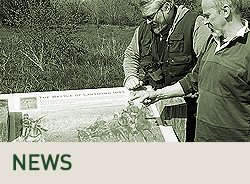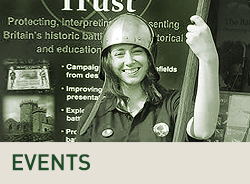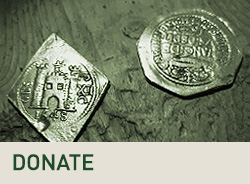The Battle
News had reached the parliamanetarians in late February 1646 that the King intended to rendezvous at Chipping Norton with a force put together by Astley by taking soldiers from garrisons in the West Midlands. They then planned to relieve Banbury or return to Worcester, probably to recommence recruitment in the Marches for the 1646 campaign. Parliament's Colonels Morgan, Birch and Rous with Major General Brereton were ordered to combine their forces and intercept Astley. In Brereton's absence, due in part to faulty intelligence, Morgan drew out his forces from Chipping Campden to harry Astley as the latter climbed 'Campden Hills' - probably Broadway Hill - after he had crossed the Avon at Bidford. Breaking off the engagement at around 8-9pm Morgan awaited Brereton's arrival before advancing again after Astley a few hours later.
Brereton caught up with Morgan by early on the 21st. The march was leading them south towards Stow on the Wold, a small and politically unimportant town. However, Stow’s geographical location made it of significant military importance owing to its strategic position at the junction of several important routes in the centre of England.
Parliamentarian scouts found Astley as he was about to pass through Stow and attacked his rear again, forcing him to make a stand rather than be caught in line of march. Both armies deployed a little to the north of Stow and waited. The parliamentarians attacked at soon as it was light. The initial engagement was in the Royalist favour with the parliamentarian left wing and centre pushed back. The advantage was short lived however, and Brereton’s aggressive cavalry attack on the right wing soon overpowered and routed Astley’s men. The royalists attempted a fighting retreat into Stow with the last action taking place on the market square. It was here that Astley himself yielded. The loyal old commander provided prophetic words, as fitting to the last battle of the first Civil War as were his famous words at the beginning of the first major battle. He told his captors as he rested, after a drum had been brought for him to sit upon: ‘You have now done your work, and may go play, unless you will fall out amongst yourselves.’






